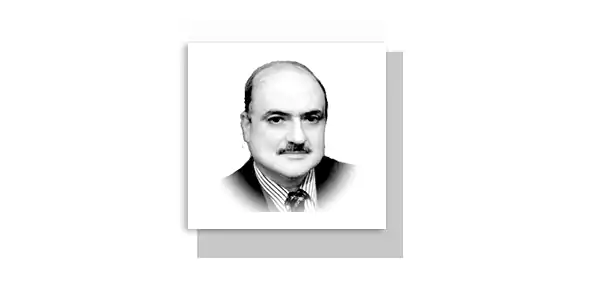SOME capitals are distinguished by their history others by geography; still others by their veritable grandeur. For an observer, it would require considerable stretch of imagination, to place our very own capital city in any of these categories. Nevertheless, the city does have peculiarities, all its own, not all of them of a laudable variety. An individual’s perception of the city would of necessity have to be a subjective rather than objective exercise. What follows is a rambling attempt at pinpointing some of these peculiarities from the eye view of a resident.
Contrary to the common perception, Islamabad is no longer the bureaucratic haven that it once was. The bureaucrats, with their peculiar swagger and their green-plated vehicles, are there alright, but they no longer dominate the city as they once used to. The city has been over-run by a motley crowd of the nouveux riches. These comprise the ‘people’s representatives’ on the one hand and on the other those that have migrated from the more prosperous neighborhoods of the more affluent cities of the land. There are, of course, the ‘economic migrants’ in search of livelihood who inhabit the makeshift ghettos.
The new arrivals have taken the lime-light away from the once all-powerful bureaucrat who now considers it prudent to withdraw to the relative safety of the drawing rooms and the (no longer?) exclusive Islamabad Club.
The new entry into the world of the capital is the motor car. Where-ever you go you can hardly miss the newest entrant – the latest model of the motor car! In fact there are friends who would vouch that the capital city boasts of more motor vehicles than bureaucrats. Go out in the afternoon and you will find vehicles of all classes and models not just parked but double-parked on either side of the road. In fact, there are wise cracks that let out that Islamabad has more cars than bureaucrats – and they may well be right!
A by-product of this make-over is the sudden burst of high-class eateries and fancy marriage-halls that have sprouted like wild mushrooms after rains. On the negative side is the vast array of beggars that virtually infests the city. If you are fortunate enough to own a car and successfully negotiate the roads to reach a popular shopping centre, beggars of myriad shapes and sizes descend on you like a swarm of locusts. It requires super-human effort to escape unscathed. And please do not even try to justify this swarm by talking of ‘poverty’. These are beggars of the professional variety and certainly not driven to this lucrative ‘business’ by poverty alone.
By far, the most striking feature for a visitor to the city is the virtual absence of decent public transport. The founding fathers of the capital, it appears, gave little thought to the matter of movement of the common man from point A to point B at reasonable cost and/or comfort. The much-vaunted plan of a circular railway sank without a trace in the early years of the city’s life. A serviceable public sector bus service introduced in the first few years vanished all too suddenly. An enterprising lady’s private sector bus service presented a glimmer of hope for a short period but this enterprise was snuffed out, incidentally with no little connivance of the city’s petty bureaucracy. What the city now has on offer is a pitiable fleet of ‘minibuses’ in various stages of disrepair. These are driven by a class of maniac drivers who attempt to pack in commuters much like the proverbial sardines in a tin. In fact, one would be surprised if a decent class of sardines did not scoff at this vulgar attempt at a simile. Then, there are, in tandem, a bevy of yellow cabs – most of them in a sorry state that wander aimlessly around the city, rudderless and meter-less. On the positive side, though, what the city can still rightfully boast of is its greenery. The person who was in charge of planting of trees at the city’s planning stage did a superb job. As a consequence, most roads and avenues exhibited a refreshing green look. The negative side is that the people in charge subsequently possessed little or no expertise in how to nurture, prune and maintain the thousands of trees and bushes that had been planted betimes. The result is that several areas present a look of unkempt mini-forests.
Cleanliness and hygiene is yet another aspect that could and should have been paid sufficient attention betimes. Several beautiful natural streams crisscross Islamabad capital territory but most of them have been allowed to get clogged because residents feel free to toss in debris and waste including plastic bags with impunity; the city administration being too busy in its own shenanigans to pay attention. The common resident, meanwhile, is being harassed out of his or her wits due to VIPs’ habit of cadging whole stretches of roads in the course of their hallowed ‘movements’. The excessive police check-posts placed randomly on every thoroughfare on the pretext of ‘security’ have a similar effect. While one can understand and appreciate the need to protect bigwigs, surely the authorities need to spare a wee thought also for the lowly person in the street, especially when a sizeable chunk of the city has already been denied to him or her through its designation as the ‘Red Zone’.
Add to the aforesaid the totally nondescript architecture, that jumps from one extreme to the other without so much as a ‘by your leave’, and you have a rough sketch of a city that sees before it an uphill struggle before it can even boast of a distinct identity.
— The writer is a former Ambassador and former Assistant Secretary General of OIC.
Email: [email protected]










